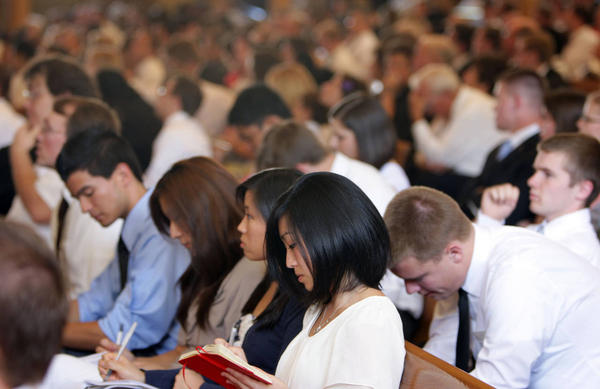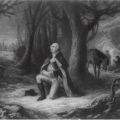Many of the earliest settlers in the United States came in search of a place to practice their religions freely. They were not yet interested, for the most part, in religious freedom for everyone, but they did want it for themselves. There were some exceptions, one notable exception being William Penn, who organized Pennsylvania as a safe haven for all religions, including those that were unpopular. The religions he sheltered still have a strong presence in Pennsylvania today.
 In time, Americans began to realize that in order to protect their own religions, they also had to protect those they did not belong to. This concept was enshrined in the Bill of Rights, where freedom of religion became the “first freedom. It reads:
In time, Americans began to realize that in order to protect their own religions, they also had to protect those they did not belong to. This concept was enshrined in the Bill of Rights, where freedom of religion became the “first freedom. It reads:
“Congress shall make no law respecting an establishment of religion, or prohibiting free exercise thereof…” Many people misquote this amendment, believing it says something about separation of church and state and interpret it to mean we must have an essentially atheistic society, preventing religious people from having a say in how the country is run. Of course, reading the amendment demonstrates this is not true. It was designed only to ensure the government didn’t choose one specific religion over another or force anyone to join a specific church—or any church at all.
The United States has not always practiced its First Amendment properly. Mormons were victims of religious persecution in the 1800s, even finding themselves the subject of an extermination order in Missouri, and were outspoken on the subject of religious freedom, not just for themselves, but for everyone. Joseph Smith, the first Mormon prophet and president, said:
“The Saints can testify whether I am willing to lay down my life for my brethren. If it has been demonstrated that I have been willing before Heaven to die for a “Mormon,” I am bold to declare before Heaven that I am just as ready to die in defending the rights of a Presbytarian [sic], a Baptist, or a good man of any other denomination; for the same principle which would trample upon the rights of the Latter-day Saints would trample upon the rights of the Roman Catholics, or of any other denomination who may be unpopular and too weak to defend themselves.” Joseph Smith (1843)
When the Mormons built their own city, freedom of religion for everyone of any faith was written into the law.
Mormons today believe that freedom of religion is an essential part of any society, protecting both the religious and the non-religious:
“At the most fundamental level, religious freedom is the human right to think, act upon and express what one deeply believes, according to the dictates of his or her moral conscience. In fact, religious freedom has always been understood in conjunction with “freedom of conscience” — the liberty to develop and hold moral convictions and to act accordingly. So while religious freedom encompasses the liberty of religious belief and devotion, it also extends well beyond that, incorporating the freedom to act — to speak freely in public, to live according to one’s moral principles and to advocate one’s own moral vision for society. The breadth of religious freedom and its relationship with freedom of conscience helps explain why religious freedom is important for everyone, not just for people of faith.” (An Introduction to Religious Freedom)
Some have tried to change the concept of religious practice to mean religious worship, which is not the same thing. Religious worship refers to the ability to attend the church of our choice, to pray and to study our faith. Religious practice reaches into every aspect of a person’s life, impacting his personal moral choices at home, at work, and at play. It is essential, Mormons believe, to preserve the integrity of the freedom, since Mormons do not consider religion to be something you do for an hour on Sunday morning followed by a week of ignoring your faith. It is something that impacts every moment of life and therefore, it encompasses more than where Mormons are on Sunday morning. The right to practice the tenants of our faith all day, every day, is essential in order to allow us to stay in line with God’s teachings.
In an essay on religious freedom, the Mormons emphasized the importance of protecting the freedoms of all, not just our own.
“But freedom of religion and conscience require more than simply living and coexisting with our differences. These preeminent freedoms also create rejuvenating obligations. All recipients of religious freedom — every group and individual who is free to live according to the dictates of conscience — must in turn protect that same freedom for all others, especially the most vulnerable, whether religious or not. That is the obligation. And it is rejuvenating because it “enable[s] diversity to be a source of national strength.” (See Why We Need Religious Freedom?)




